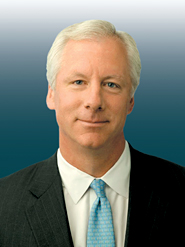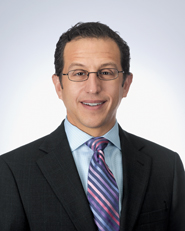The following reporting is based on submitted written testimony to Congress for today’s hearing “Market Structure: Ensuring Orderly, Efficient, Innovative and Competitive markets for issuers and Investors.”
Insiders expressed concern about the state of capital markets on Wednesday, urging congress to consider ways to improve the current system and help restore investor confidence-a major theme throughout the day. The remarks came in a hearing by the House Committee on Financial Services’ subcommittee on capital markets.
Speaking on behalf of the Investment Company Institute, Kevin Cronin, global head of equity trading for Invesco, said long-term investor confidence has been challenged by a series of scandals, crises and mishaps, including the recent problems with the initial public offering of Facebook.

Cronin suggested a number of ways to restore stability to markets and hopefully win back the faith of average investors. One idea was to impose fees on cancelled orders. While several exchanges have proposed such fees, Cronin said those proposals would be ineffectual, as they would only impact the most extreme outliers who send massive numbers of cancelled orders.
“The fee associated with the proposals is so small that it would not act as a deterrent,” Cronin said, urging regulators to impose “truly meaningful fees or other deterrents that would adequately address this behavior.”
Cronin also took aim at the system of liquidity rebates offered by the exchanges, which he said incentivized brokers to make routing decisions based on rebates rather than on what is best for the customer. Investors, he said, do not receive the rebates directly and often do not receive them indirectly, either.
He recommended a pilot program where a certain set of securities would be prohibited from being subject to rebates so regulators could study the data and determine if further rulemaking might be necessary.
Another pilot program Cronin suggested would allow certain stocks to trade at increments of more than a penny. He said that could potentially increase the depth of the market for illiquid securities.
“Since penny spreads were implemented, the average trade size has been significantly reduced, making it more difficult for funds to trade large blocks of securities, particularly in small-cap and less liquid stocks,” Cronin said. “A pilot program would generate valuable data on the impact on liquidity in these stocks.”
Jeffrey Solomon, chief executive officer of Cowen and Co., agreed. Testifying before the same subcommittee, Solomon said the last decade has seen a significant decrease in liquidity for small-cap stocks, and he blamed that in large part on decimalization.
“As a direct result of reduced trading spreads, professional market makers and specialists, whose job was to provide liquidity for their clientele, were forced to overhaul, sell or dissolve their businesses to contend with much lower revenue,” Solomon said. That meant reduced coverage of small-cap stocks, he added.
In addition to finding ways to increase coverage of illiquid names, Solomon emphasized the importance of bringing back initial public offerings for smaller companies. He provided several charts which illustrated the dramatic falloff over the last decade in IPOs raising less than $60 million.
Solomon noted that Cellular Communications, which helped build infrastructure for cell phones and created numerous jobs, raised only $25 million when it went public in 1986, but that money allowed it to expand.
“Today, no firm will do a $25 million IPO as it will likely only lead to another illiquid small-cap stock,” Solomon said.
Knight Defends Reg NMS, Internalization, Off-Exchange Trading
Markets are faster and more efficient than ever in part because Reg NMS promotes more competition and internalization is a boon for the investor. Therefore, regulators and lawmakers should be careful tinkering with either.
Those were the written comments of Knight Capital Group Chairman and CEO Thomas Joyce, who testified on Wednesday on market structure before a U.S. House subcommittee.

Almost every aspect of U.S. equity market quality is now better than seven years ago, even allowing for the recent flash crash and Facebook IPO foul-ups. He noted that average execution for a retail order was some 12 seconds in 2004. But today, he added, it is less than a second and investors are now more likely to receive better than the NBBO.
Still, Joyce said that the persistent trade-at rule proposals, which would limit internalization, should be dismissed. Internalization is a practice used by big liquidity providers like Knight. And Joyce told lawmakers internalization provides low-cost executions and limits the danger of information leakage.
“To move away from this network venued system, with its lit and dark venues that offer execution flexibility would be a step backward,” according to Joyce. “From the point of view of smaller market participants, such as retail investors, the market has never been so inclusive and efficient,” he added.
Joyce contends a trade at rule would drive up costs for both retail and institutional orders. That’s because orders would be tagged with access fees, he added. It would also reduce innovation and competition, according to Joyce.
Joyce also argues that exchange officials, in pending or expected rules proposals, are trying to cut into Rule 612 of Reg NMS, the sub-penny rule. The rule prevents market participants “from displaying, ranking, or accepting quotations in NMS stocks that are priced in an increment f less than $0.01, unless the price of the quotation is less than $1.00.”
Yet Joyce complains that exchange officials are trying to attract retail order flow through offering price improvement from non-displayed sub-penny orders posted on an exchange book. Joyce warns that, once one exchange is allowed to do so, other market participants will do the same. Sub-penny quotes will be headed down “a slippery slope” without “adequate study and analysis.”
Joyce’s defense of the rule was part of a series of comments in which he contended that displayed markets are healthy. He dismissed those who say off exchange trading is hurting exchanges, according to the written testimony.
CS’s Mathisson Requests Liability for Exchanges
Dan Mathisson, head of U.S. equity trading for Credit Suisse, asked congress on Wednesday to strip the exchanges of their immunity from liability in order to restore “moral hazard” and prevent another fiasco like the chaotic initial public offering of Facebook.
Speaking at a hearing by the House Committee on Financial Services’ subcommittee on capital markets, Mathisson said the technology breakdown on Nasdaq during the May 18 Facebook IPO caused significant chaos.

“The best way to reduce the chances of similar technology problems from occurring in the future is to remove protections which grant exchanges absolute immunity from liability,” Mathisson said. “Providers of trading technology will naturally exercise greater caution if they have material liability when their technology fails.”
Though Nasdaq was required to pay for the error, there is a $3 million limit to the amount the exchange is liable for mistakes. In the wake of the Facebook fiasco, Nasdaq set up a $40 million voluntary fund to accommodate firms that lost money.
Since exchanges are self-regulatory organizations, they are considered quasi-governmental units, which is why they have traditionally been granted immunity from liability. But Mathisson argued a policy that made sense when the exchanges were non-profit member-owned bodies seems unfair now that they are for-profit companies.
“While they still have a few vestigial regulatory functions, the vast majority of their regulatory responsibility is outsourced to FINRA,” Mathisson said, alluding to the Financial Industry Regulatory Authority. “Exchanges now function as broker-dealers in many ways.”
In addition to stripping exchanges of their immunity from liability, Mathisson also asked congress to make it easier for broker-dealers to turn their own alternative trading systems into full exchanges. Currently, a broker-dealer is forbidden from owning more than 20 percent of an ATS or dark pool, so firms have to spin off the vast majority of ownership if they want a venue to become a full exchange.
“If this restriction was lifted, most of the major ATS’s would choose to become exchanges, after which the playing field would be level,” Mathisson said.
According to numbers from Rosenblatt Securities, the Credit Suisse ATS “Crossfinder” is the largest dark pool in the U.S.
Duncan Niederauer, CEO of NYSE Euronext, cautioned about how too much off-exchange trading activity hurts price discovery, and ultimately, investor confidence. “Today, one third of all equity trading takes place off exchange and over 1,200 securities have more than 50 percent of their volume traded off-exchange, an increase of 143 percent in less than two years,” per Niederauer’s written comments.
His testimony went to say that broker-dealers that internalize their flow did not do that on May 6, 2010, during the “flash crash.” They sent their orders to the exchanges and put added pressure on the marketplace. Niederauer reiterated NYSE Euronext’s stance on the trade-at rule in that an internalizing firm should “display a protected quote at the NBBO or provide meaningful price improvement over the NBBO.”

Competition from advances in technology and regulatory changes in the last 15 years have “helped to promote and fair competition, leveling the playing field for all market participants,” said Cameron Smith, president of Quantlab Financial, a Houston, Texas firm that trades globally using high-speed strategies across multiple asset classes.
Smith described how today’s automated traded are the new intermediaries in the marketplace, replacing the “privileged intermediaries” of the past. And today’s intermediaries, like his firm, are in “fierce competition” and as a result, are providing investors the ability to buy or sell with low transaction costs.
“In sum, regulatory changes and technology advancements have led to a higher quality market that has benefited all classes of investors, including retail and institutional, in the form of lower transaction costs, dampened volatility, and prices that better reflect all information,” according to Smith.
Still, Smith pointed to areas where he believes the market could be improved. One would be to set up accepted measures of market quality and to monitor these data points over time. “Our capital markets are far too important to allow policymaking decisions to be driven by opinion and anecdote as to the current state of our markets. Certainly, discussions about market structure, including high frequency trading, could benefit from rigorous statistical analysis.”
He also believes that stocks should be permitted to trade at wider spreads, depending upon their liquidity characteristics. “While decimalization and penny increments have saved investors of hundreds of billions of dollars, a one-size fits all approach regardless of whether a stock trades for $5 or $500 does not make sense,” Smith said.
Jim Toes, president and CEO of the Security Traders Association, also discussed spreads and how decimalization has hurt liquidity for small and medium sized companies. Toes called for an examination of the impact that decimalization has had on market making, both electronic and traditional types, for these companies. He suggested a pilot program to be run by the SEC with a number of companies, with the goal of seeing whether investors would pay greater spread costs for increased liquidity.
Daniel Coleman, chief executive officer of the market maker GETCO, said that a review of our nation’s capital markets is more vital now than ever given how investor confidence has deteriorated over the last decade.
“In spite of many advances, investors-both individual and institutional-feel out-gunned, overwhelmed and out-of-touch,” Coleman said.



